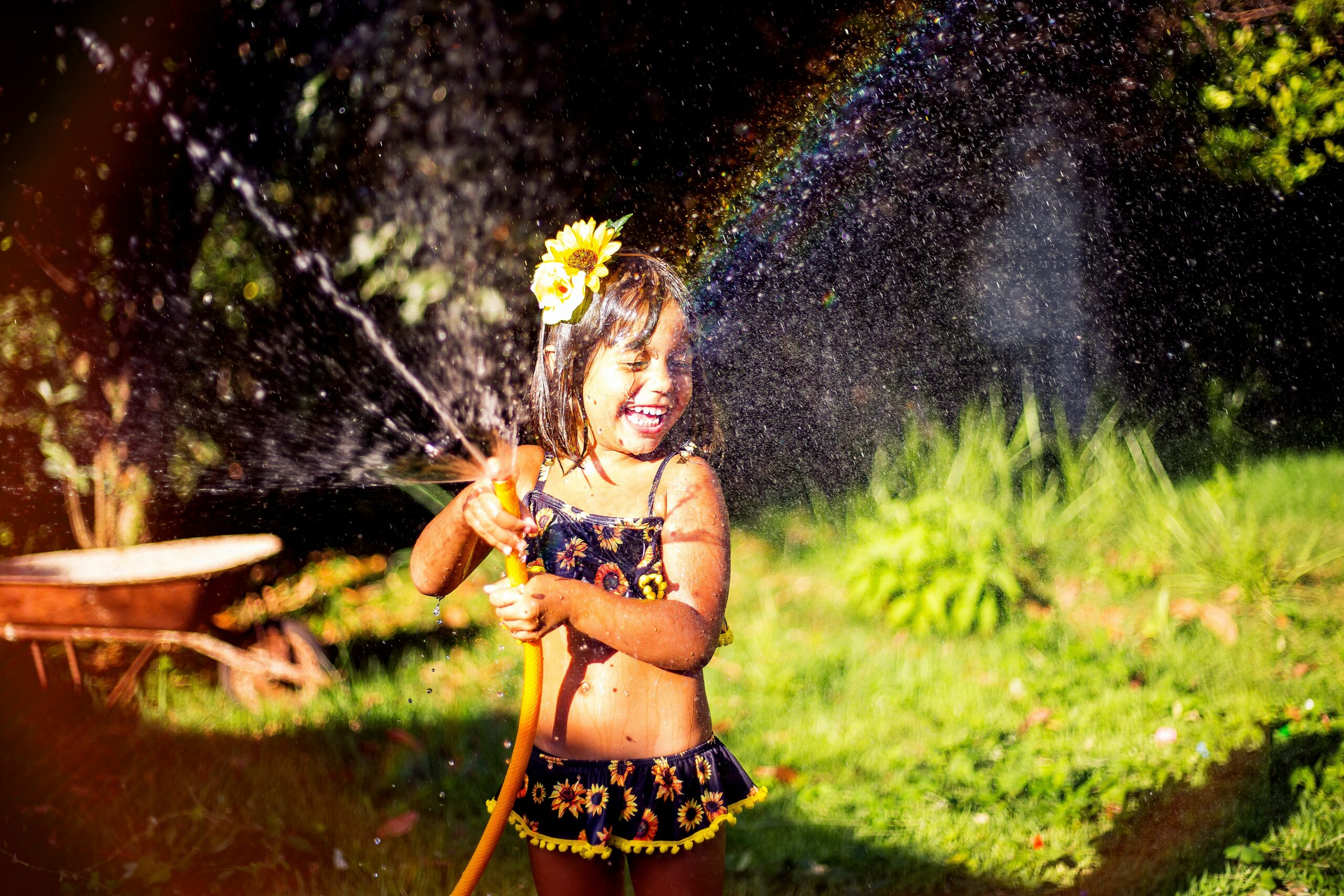
6 Mind-Blowing Backyard Science Experiments for Kids

Here are 6 exciting and challenging science experiments you can use to fill your child’s days with a little learning and a lot of fun. These activities are appropriate for children of all ages. Best of all, your family can complete these lessons in your backyard:
Hot Air Balloon
In addition to teaching your child about heat flow, this activity also helps energetic kids blow off some steam:
- Fill a dark-colored garbage bag with air by asking your child to hold it open while running around the yard.
- After the bag is filled with air, tie it off, sealing the air inside.
- Let the bag sit in the sunlight for a bit.
- Watch as the bag slowly starts to rise. Ask your child why this might be happening.
- Finally, explain to your child that the bag is rising because the air inside the garbage bag is now warmer than the air outside of the bag. What a perfect introduction to the concept of heat rising! Can you think of any real-life examples of heat flow in action… such as weather patterns or a hot air balloon, for example?
Plant a Garden
In addition to promoting healthy eating habits, this activity teaches your child about growing fruits and vegetables. Gardening together as a family is fulfilling and memorable for both parents and children:
- At the start of the week, tell your child not to throw away any seeds from the fruits and veggies they eat throughout the week.
- After your child spends a few days collecting seeds, it’s time to start your backyard garden. Explain to your child what the word organic means. Explain that this gardening project will last all spring and summer, after which, you’ll have an organic garden full of your child’s favorite edible foods.
- Discuss the types of plants that grow best in your area. This is a perfect opportunity to teach your child about choosing which fruits or vegetables to plant.
- After planting your chosen fruits and veggies, involve your child in a variety of garden-based activities. Some essential activities that you can complete together as a family include: churning the earth, tending to seedlings, watering plants, harvesting food and cooking delicious meals.
Exploding Baggies
Could your child be a future chemist? Here’s one way to find out. This activity is great for discussing the roles of heat and cold in chemical reactions:
- Fill small baggies with vinegar.
- Cover paper towels with baking soda and add one towel per baggie.
- Leave the bags outside on a sunny day.
- Watch the bags closely. As the carbon dioxide inflates each bag, you’ll see each one rise and rise before finally popping.
Backyard Biology
This experiment teaches small children about biology, ecosystems, and the impact trees have on our environment. Stop and appreciate the small things in your own backyard while learning about backyard biology:
- Grab a magnifying glass (or, if you don’t already have one, make a DIY homemade magnifying glass.)
- Together with your child, walk through your backyard. As you walk, point out any interesting items, such as leaves, sticks, flowers, clovers and rocks.
- Examine your child’s favorite items under the magnifying glass. Discuss the role each item plays in your backyard ecosystem.
- Examine leaves to reveal the different species of trees in your yard. Finally, discuss the important role trees play in the environment and our lives.
Fizzy Volcano
Small children learn about the world through sensory play. If you have little ones, this is the perfect geology activity to try at home:
- Combine baking soda with vinegar in a bowl. (For a fun, seasonal twist, you can substitute a hollowed out watermelon for the bowl.)
- Add a few drops of food coloring. To avoid synthetic dyes, you can make DIY food coloring from grape juice or turmeric.
- Let your toddlers or small children get messy with fizzy playtime! Watch as the “volcano” bubbles to the top and explodes.
Sink or Float
- Collect items from your backyard, like a rock, twig, leaf, flower, or clover.
- Place the items in a plastic tub of water.
- Talk to your children about density. Guess which items you think will sink or float.
- Watch the items to see if you were right!
When it comes to bridging the gap between education and entertainment, you need look no further than your backyard. Taking your kids’ education to the next level doesn’t mean you’ll have to transform into a scientist, botanist, or chemist. All it takes is a little creativity, a bit of effort, and a lot of enthusiasm.
What People Are Asking About Science for Kids
Where can I find earth and space science lesson plans for elementary school?
Online science lesson plans are not only easy to access, they can be fun for kids. Start with this article that lists some great online STE(A)M courses for kids.
What is the best biology lesson plan for high school?
There are many great ways to get your teens interested in biology. Might we suggest learning more about plants and animals? This article talks about getting your teen involved in classifying plants, observing animals, and more.
Why is it important to study geology?
Geology helps us learn more about Earth—what it’s made of, its shape, and its natural hazards such as earthquakes, floods, and volcanic eruptions. You can teach your kids more about geology by completing some fun at-home geology projects together.
Which is easier: geology or astronomy?
Geology is the study of Earth, while astronomy is the study of the universe. Depending on your child’s interests, they may find one of these subjects is easier to learn than the other. If your child is interested in studying rocks or fossils, then they may find geology to be an easier field of science. If your child wants to learn more about the solar system, then astronomy would likely be an easier subject. Check out some great outdoor projects, including geology and astronomy, so that your child can get an idea of which field of science they might enjoy more.
What are some science camp activities for kids?
Science camps can cover all types of science—geology, astronomy, meteorology, oceanography, and computer science, among others. There are many science activities for kids that fall under these categories of science. For example, kids can examine different types of rocks and minerals, observe the night sky, create “weather” in a jar, build their own submarine, or learn to code their names.
Photo: Pexels
